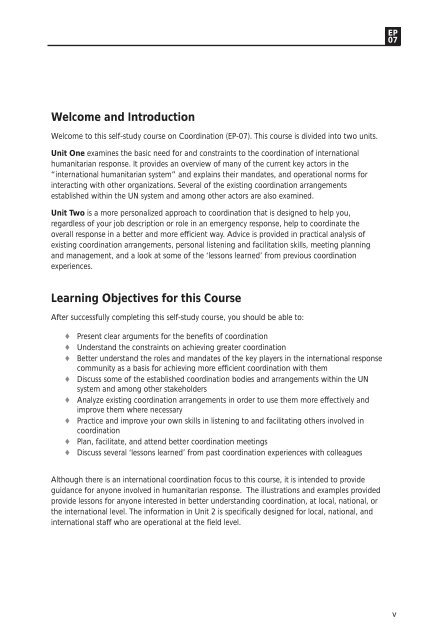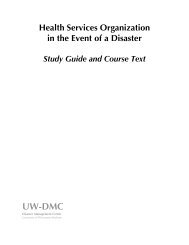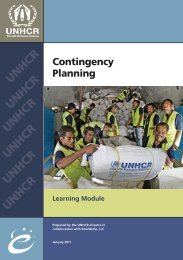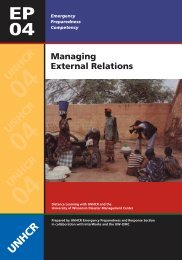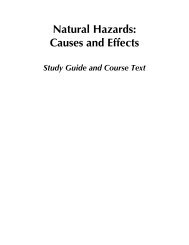Coordination - Disaster Management Center - University of ...
Coordination - Disaster Management Center - University of ...
Coordination - Disaster Management Center - University of ...
Create successful ePaper yourself
Turn your PDF publications into a flip-book with our unique Google optimized e-Paper software.
EP07Welcome and IntroductionWelcome to this self-study course on <strong>Coordination</strong> (EP-07). This course is divided into two units.Unit One examines the basic need for and constraints to the coordination <strong>of</strong> internationalhumanitarian response. It provides an overview <strong>of</strong> many <strong>of</strong> the current key actors in the“international humanitarian system” and explains their mandates, and operational norms forinteracting with other organizations. Several <strong>of</strong> the existing coordination arrangementsestablished within the UN system and among other actors are also examined.Unit Two is a more personalized approach to coordination that is designed to help you,regardless <strong>of</strong> your job description or role in an emergency response, help to coordinate theoverall response in a better and more efficient way. Advice is provided in practical analysis <strong>of</strong>existing coordination arrangements, personal listening and facilitation skills, meeting planningand management, and a look at some <strong>of</strong> the ‘lessons learned’ from previous coordinationexperiences.Learning Objectives for this CourseAfter successfully completing this self-study course, you should be able to:♦♦♦♦♦♦♦♦Present clear arguments for the benefits <strong>of</strong> coordinationUnderstand the constraints on achieving greater coordinationBetter understand the roles and mandates <strong>of</strong> the key players in the international responsecommunity as a basis for achieving more efficient coordination with themDiscuss some <strong>of</strong> the established coordination bodies and arrangements within the UNsystem and among other stakeholdersAnalyze existing coordination arrangements in order to use them more effectively andimprove them where necessaryPractice and improve your own skills in listening to and facilitating others involved incoordinationPlan, facilitate, and attend better coordination meetingsDiscuss several ‘lessons learned’ from past coordination experiences with colleaguesAlthough there is an international coordination focus to this course, it is intended to provideguidance for anyone involved in humanitarian response. The illustrations and examples providedprovide lessons for anyone interested in better understanding coordination, at local, national, orthe international level. The information in Unit 2 is specifically designed for local, national, andinternational staff who are operational at the field level.v


